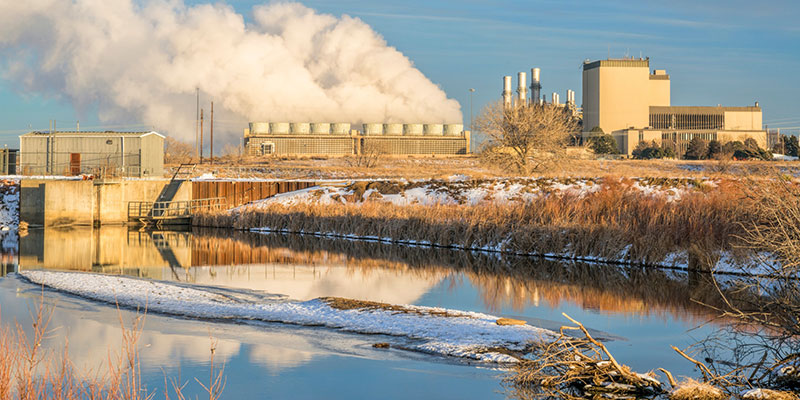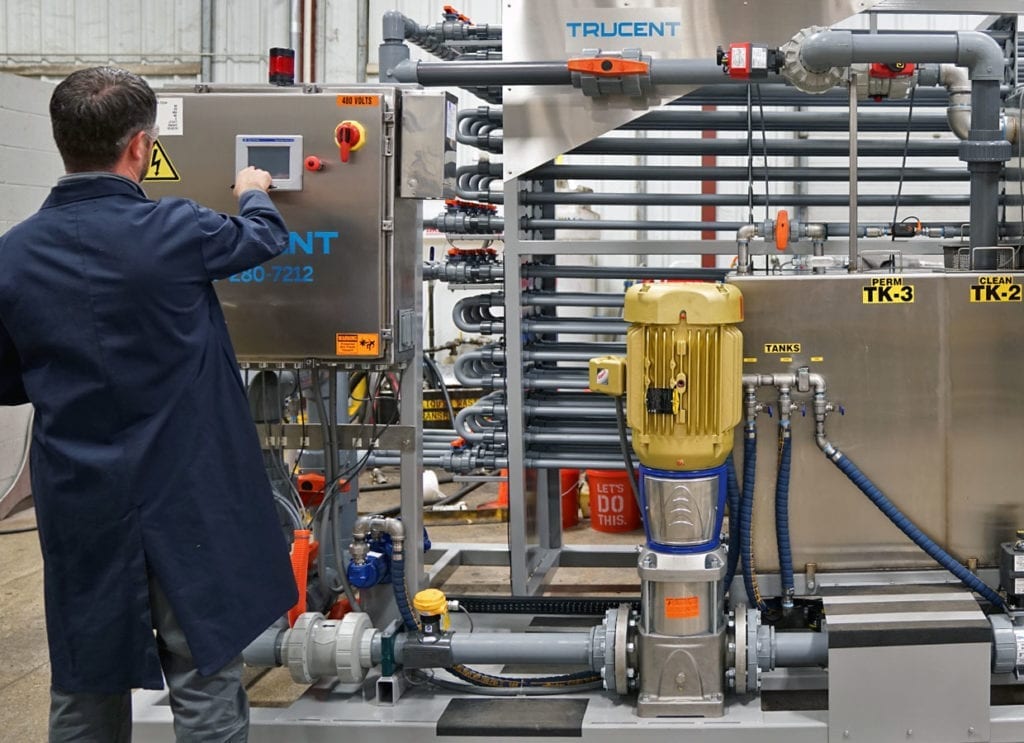Industrial Waste Water Treatment-- Tailored Solutions for Effective Wastewater Treatment
Wiki Article
The Role of Hazardous Waste Water Treatment in Environmental Security
The effective therapy of industrial wastewater is significantly acknowledged as a cornerstone of ecological security, offering to minimize the destructive influences of toxins on water ecosystems. As markets increase and progress, the demand for robust wastewater monitoring options becomes extremely important to make certain conformity with ecological guidelines and promote sustainable methods.Importance of Drainage Therapy
The relevance of wastewater treatment can not be overstated, as it plays a crucial function in shielding public health and wellness and the atmosphere (Industrial Waste Water Treatment). Efficient wastewater therapy systems are essential for getting rid of impurities from commercial discharge, consequently preventing unsafe materials from going into natural water bodies. This procedure reduces the threat of waterborne conditions, which can develop from neglected wastewater, and safeguards community wellness
In addition, dealt with wastewater can be safely recycled in various applications, such as irrigation and industrial processes, promoting lasting water monitoring methods. By recycling water, sectors can significantly minimize their freshwater usage, adding to resource preservation.
In addition to health and wellness advantages, wastewater therapy is essential for protecting water ecosystems. Toxins in without treatment wastewater can lead to the destruction of water top quality, harming water life and disrupting environmental balances. By treating wastewater prior to discharge, markets aid preserve the integrity of regional environments and advertise biodiversity.
Moreover, regulative compliance is a key facet of wastewater monitoring. Sticking to well-known environmental criteria not only prevents legal consequences but likewise enhances a company's online reputation as a responsible corporate person. In significance, efficient wastewater therapy is indispensable for protecting public health, securing the setting, and promoting lasting commercial techniques.

Sources of Hazardous Waste Water
Industrial wastewater stems from a range of resources, each adding to the complexity of treatment procedures. Mainly, these resources consist of making facilities, refineries, and processing plants, which generate effluents as a byproduct of their procedures. Industries such as textiles, pharmaceuticals, food and drink, and petrochemicals create significant quantities of wastewater, commonly filled with pollutants consisting of heavy metals, natural substances, and nutrients.Along with production, agricultural tasks add to industrial wastewater with overflow and effluent from livestock operations and plant processing. The meat and milk sectors, particularly, are known for releasing high levels of biochemical oxygen need (BODY) and virus.
Furthermore, mining and mineral processing tasks create wastewater including put on hold solids and hazardous chemicals. Power generation plants, specifically those using nonrenewable fuel sources, likewise add wastewater with cooling systems and chemical cleaning processes.
Each of these resources presents special difficulties concerning the composition and volume of wastewater created, necessitating tailored therapy solutions to minimize their environmental effect. Understanding the varied origins of industrial wastewater is vital for establishing reliable monitoring techniques focused on shielding water resources and advertising sustainable commercial practices.
Treatment Processes and Technologies
Effective treatment processes and innovations are important for handling commercial wastewater and alleviating its ecological effect. Numerous approaches are employed to remove impurities, adapt to various wastewater characteristics, and conform with regulatory requirements.Physical therapy processes, such as sedimentation and filtration, assist in the elimination of suspended solids. These methods are often used as initial steps to lower the tons on succeeding treatment stages. Chemical treatment, consisting of flocculation, neutralization, and coagulation, addresses dissolved toxins by changing their chemical properties, making them less complicated to separate from water.
Organic therapy innovations, such as turned on sludge systems and biofilters, make use of microbes to degrade organic issue and nutrients. These techniques are especially reliable for biodegradable waste streams, promoting the all-natural disintegration process. Advanced therapy innovations, such as membrane layer purification and advanced oxidation processes, offer enhanced elimination efficiencies for challenging contaminants, including heavy steels and consistent organic substances.
Each of these treatment procedures can be configured in various mixes to produce tailored services that satisfy certain commercial requirements. The choice of modern technology depends on elements such as the sort of wastewater, preferred treatment results, and financial considerations, making sure that markets can run sustainably while reducing their environmental impact.
Ecological Advantages
Carrying out durable wastewater treatment processes not only makes certain compliance with governing standards however additionally produces considerable environmental advantages. Reliable therapy of industrial wastewater lowers the discharge of harmful pollutants right into all-natural water bodies, therefore shielding water ecological communities. By getting rid of harmful substances, heavy metals, and pathogens, these procedures assist maintain biodiversity and advertise much healthier ecosystems.Furthermore, treated wastewater can be repurposed for various applications, including watering and industrial procedures, decreasing the need for fresh water resources. This reuse not only saves water however additionally lowers the anxiety on neighborhood water products, which is particularly vital in water-scarce regions.
Furthermore, effective wastewater treatment alleviates the danger of soil and groundwater contamination, ensuring the honesty of local environments. Industrial Waste Water Treatment. By preventing the seepage of unsafe substances, industries contribute to the general wellness of surrounding ecological communities and neighborhoods, improving public trust and fostering lasting industrial methods
Regulative Framework and Compliance
A thorough governing framework controls the therapy of industrial wastewater, ensuring that industries follow stringent compliance requirements. Different national and regional laws, such as the Clean Water Act in the United States, set forth restricts on the discharge of contaminants into water bodies. These laws are designed to moved here shield aquatic environments and public health by mandating that industries carry out suitable therapy modern technologies.Compliance with these policies frequently involves obtaining permits, performing routine tracking, and reporting discharge degrees to regulatory authorities. Failure to abide can result in significant charges, including penalties and functional restrictions, therefore incentivizing sectors to take on finest techniques in wastewater administration.
In enhancement to governmental laws, numerous industries likewise stick to volunteer standards and certifications, such as ISO 14001, which promote sustainable ecological monitoring techniques. click over here now Moreover, stakeholders are increasingly advocating for enhanced openness and responsibility in wastewater monitoring, promoting more stringent enforcement and even more rigorous reporting needs.
Inevitably, a durable regulatory framework not only serves to minimize ecological dangers yet also fosters a culture of sustainability within the commercial market, encouraging continual enhancement in wastewater treatment processes.
Conclusion

The effective treatment of industrial wastewater is increasingly recognized as a foundation of ecological protection, serving to alleviate the damaging impacts of pollutants on water ecological communities. Efficient wastewater treatment systems are essential for removing impurities from industrial discharge, thus preventing damaging substances from entering all-natural water bodies.Industrial wastewater originates from a variety of resources, each contributing to the complexity of therapy processes. Efficient therapy of commercial wastewater decreases the here are the findings discharge of damaging toxins right into natural water bodies, therefore shielding aquatic communities.In conclusion, commercial wastewater therapy is crucial for safeguarding environmental honesty and advertising lasting water administration.
Report this wiki page